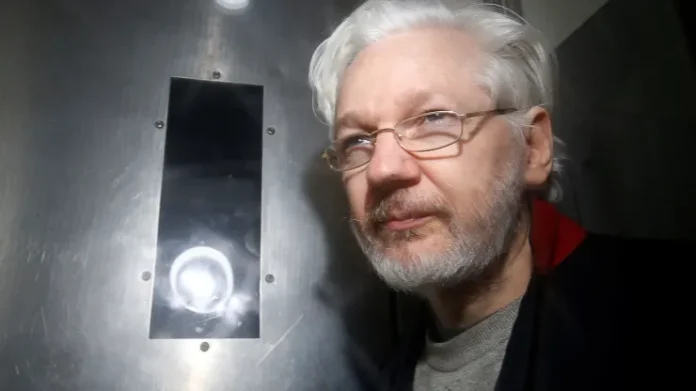
Julian Assange, the founder of WikiLeaks, received permission from a U.K. court on Tuesday to appeal his extradition to the United States, where he faces charges related to espionage. As a result of this decision, Assange will not be extradited immediately, according to the court’s ruling. The Royal Courts of Justice in London granted Assange the opportunity to pursue a new hearing, contingent upon certain assurances from the U.S. government addressing key aspects of his appeal.
The court specified that the U.S. has three weeks to provide assurances regarding Assange’s rights under the First Amendment of the U.S. Constitution, ensuring he is not prejudiced at trial due to his nationality, guaranteeing him the same First Amendment protections as a U.S. citizen, and assuring that he will not face the death penalty. Failure to provide these assurances would result in the granting of an appeal hearing. A subsequent hearing scheduled for May 20 will assess the adequacy of the assurances provided by the U.S.
Assange, 52, has been engaged in a legal battle against extradition for over a decade. During this time, he spent seven years in self-imposed exile at the Ecuadorian embassy in London, followed by nearly five years at Belmarsh, a high-security prison near London. The extradition request stems from 18 charges against Assange, including 17 under the Espionage Act and one under the Computer Fraud and Abuse Act. If extradited and convicted, Assange could face up to 175 years in prison for WikiLeaks’ publication of confidential military files and diplomatic documents related to the Afghanistan and Iraq wars.
The U.S. alleges that Assange played a significant role in the release of classified information, characterizing it as “one of the largest compromises of classified information in the history of the United States.” However, Assange and his legal team maintain his innocence, arguing that the case against him is politically motivated.
WikiLeaks rose to global prominence in 2010 after releasing footage of a 2007 U.S. helicopter attack in Baghdad that resulted in the deaths of two Reuters journalists and several others. Subsequent releases of classified files by WikiLeaks continued to garner attention and scrutiny, often leading to tensions between the organization and the U.S. government.
Outside the Royal Courts of Justice, protesters assembled to demand Assange’s release. Stella Assange, Julian’s wife, expressed astonishment at the court’s decision, highlighting concerns about her husband’s rights and the potential for political interference from the U.S. government.
Assange’s absence from the recent court hearing in February due to health reasons underscored the ongoing challenges he faces, both legally and personally, as he continues to fight against extradition and defend his journalistic activities.























